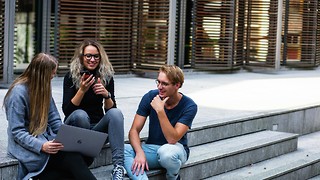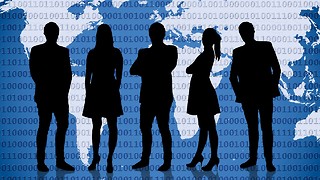L’enfer c’est les autres – on the internet, at least.
The dangers of the internet are other people – not the big corporations

Earlier this month I was using Gmail when my computer, which is endearingly decrepit and increasingly idiosyncratic, decided to transport me to a section of the site I hadn’t seen before. All my searches since I’d got the account were stored there, in careful chronological order – from the idle Amazon shop at midday to the frenetic attempts to locate Dial-A-Booze at midnight. I was shocked – this must be a disgusting breach of privacy, right?
When we use the internet, we imagine it is a private act. That we are alone when we use social networking sites or search engines gives a false sense of the personal; we forget that this is a medium constructed to be accessed by other people. And this leads to all sorts of problems. Like my brief cry of protest - I forgot it’s a commercial enterprise which is only interested in the results in aggregate. It’s misleadingly looked at as if it’s a closed loop, you put something into it and that’s it. Finish.
This kind of naiveté occasionally clashes with another misplaced idealism when internet privacy is mentioned. Facebook recently tightened its privacy settings, allowing you to select which group of friends can see which bits of your profile – who sees what. In part this was a response to Google+ and their ‘circles’ but it’s lead to an outcry of a different kind – the death of the open internet.
Some people talk about the open internet as being a free, uninhibited vision of everyone having access to everything and no one exploiting the data of others. A virtual utopia. To my mind, the open internet was and is about the free flow of information – an exchange of thoughts, ideas. And being able to see the photos of someone a mate hooked up with in Little Barmouth shouldn’t be included. The details of our private lives don’t belong in a public domain, unless we choose to put them there.
So the problem isn’t Google, or our data being used on aggregate, it’s when the information we put in isn’t being used on aggregate. When it’s targeted viruses, blackmailers, even abusive exes – people who make a personal use of what you’ve put online. There’s an anachronistic snobbery about people’s online identity – that it’s not a meaningful part of them. People put hours of their life into cultivating an online persona, perhaps projecting who they want to be – they leave an online signature, a trace, every bit as real as their non-virtual identity; it constitutes an aspect of who we are an as such we need to maintain ownership over it. But the problem isn’t huge multinationals – it’s other people and how they see us.
 News / British Academy elects 12 Cambridge academics22 July 2025
News / British Academy elects 12 Cambridge academics22 July 2025 News / Lord Smith elected Cambridge chancellor23 July 2025
News / Lord Smith elected Cambridge chancellor23 July 2025 News / Right-wing group calls for charges over Balfour portrait vandalism24 July 2025
News / Right-wing group calls for charges over Balfour portrait vandalism24 July 2025 Lifestyle / Keeping the spark alive (platonic edition)24 July 2025
Lifestyle / Keeping the spark alive (platonic edition)24 July 2025 Comment / Stop disarming people of their nuance23 July 2025
Comment / Stop disarming people of their nuance23 July 2025







